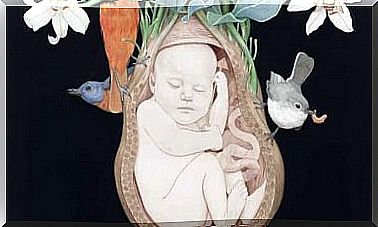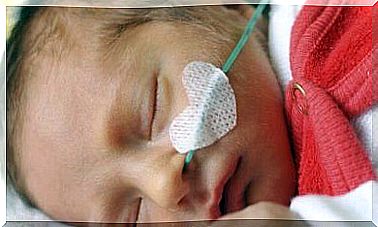What Is Cholestasis Of Pregnancy?

Cholestasis is a disease that appears only in pregnancy, occurs in the liver and usually occurs in the last months of pregnancy. It is a rare condition that affects approximately one pregnant woman in every thousand in the world, having its highest incidence in countries such as Chile and Sweden.
It is understood that some conditions are more prone to some pregnant women; for example, a history of liver disease, a genetic relationship, or multiple pregnancy is required. One of the main signs that indicate cholestasis is an excess of itching in the body of the pregnant woman.
Also known as cholestasis gravidarum, it is caused by the hormonal alteration common in pregnancy, where the amount of hormones can saturate the gallbladder preventing bile from flowing normally. In this sense, it can be seen that the appearance of this disease coincides with the last months of pregnancy, precisely when the level of hormones is the highest.
Symptoms of cholestasis of pregnancy
As we have already said, it usually appears at the end of the gestation process and is manifested by severe itching, characteristically located on the feet and hands. In less frequent cases jaundice may occur ; so itching is considered one of the most noticeable symptoms.

Other symptoms of cholestasis are:
- Variations in the color of stool and urine
- Sickness
- Exhaustion
- Depression
- Lack of appetite.
Usually most of the symptoms begin to disappear within a few days after giving birth ; But according to specialists, there are high chances that the disease may recur in another pregnancy. To treat the disease, specialists focus on controlling itching and administering drugs to eliminate excess bile acids.
Treatment also includes vitamin supplementation, corticosteroid skin creams, cold water baths, and application of ice to improve circulation. The characteristics of the blood must also be kept under control to protect the baby from possible intracranial hemorrhage.
Risks of cholestasis in the fetus
In the opinion of experts, the complications of this disease are greater for the fetus than for the mother. In general, the symptoms of cholestasis can be bothersome, but the baby is at greater risk because its health depends largely on the state of its mother’s liver.
A common consequence of cholestasis of pregnancy is that the amniotic fluid can be contaminated with the baby’s first bowel movement. When this happens, constant monitoring is essential, many times it is the cause of induced labor, which is done in centers specialized in neonatology.


Cholestasis gravidarum can cause the baby’s liver to be affected as well, putting him at risk of being born prematurely or dying. For this reason, doctors sometimes prefer to induce labor when this disease occurs; as long as the fetal lungs are mature.
Other complications in the fetus can be attacked with proper treatment; however, mortality in these cases has reached up to 20%. Although there is not a broad clarification of the conditions of death of many of these fetuses, the relationship of premature births with this disease indicates its seriousness.
Postpartum sequelae of cholestasis
After the baby is born, the normal thing is that the disease disappears in a few weeks, if not, it is necessary to reevaluate the diagnosis. It is believed that in a period of approximately six weeks, the presence of viral or other diseases such as liver cirrhosis and fatty liver should be ruled out.
It is understood that up to 90% of women who were diagnosed with cholestasis in one pregnancy are likely to have it again in future pregnancies. That is why the alert is maintained for other cases, so many aspects of your life must be improved, such as diet.
Another warning focuses on oral contraceptives, which are not suitable for women who suffered from the disease, because the pills are associated with the appearance of liver problems. That is, women with a history of cholestasis should not take birth control pills.









